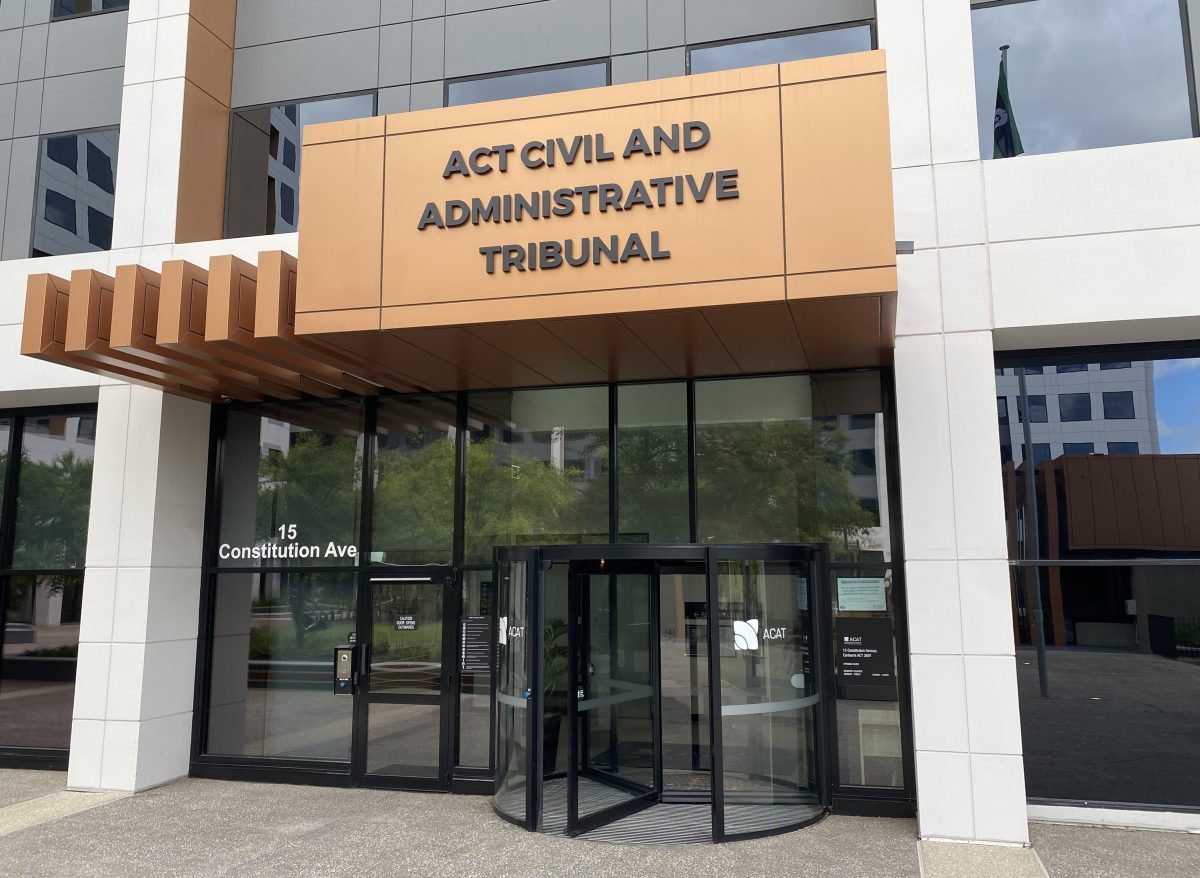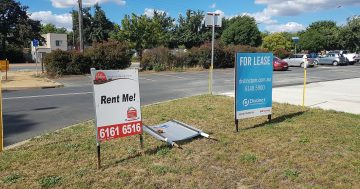
ACAT stepped in to settle a bond dispute over a property in Macgregor that “failed basic amenities”. Photo: Claire Fenwicke.
A bond dispute between a landlord and his former tenants who rented a $750-a-week house that needed “urgent serious repairs” ended up before the ACT’s civil tribunal.
The home was “clearly deficient in a number of key aspects which made [it] difficult to live in”, ACT Civil and Administrative Tribunal’s (ACAT) member Mark Hanna found in his decision published earlier this month.
However, he was not persuaded it was “unfit for habitation”, even though it “failed basic amenities, particularly in the kitchen, ensuite and master bedroom”.
In March 2023, the tenants began to lease the landlord’s property in Macgregor for a fixed term of 52 weeks at $750 a week with a bond of $3000.
But on the first day of occupation, they told the landlord a swarm of bees was on the property and the home needed urgent attention due to safety concerns.
They disputed the stated condition of almost everything on the property report, claiming there were serious defects needing urgent repair, other defects, and issues with cleanliness and mould.
Mr Hanna accepted that by April 2023, “urgent serious repairs were required”.
The tenants said the kitchen sink was blocked and unuseable, the cooktop didn’t work, the kitchen tap didn’t have hot water, the ensuite toilet was blocked and unworkable, the toilet seat had a broken hinge, the shower door was defective, the outdoor pump leaked water when on, the laundry didn’t have anywhere to connect a washing machine, and six lights in the house didn’t work including in the kitchen and main bedroom.
They ended up using their own burner to cook, washed dishes in the laundry and lit the bedroom with a light from an ensuite.
ACAT found many of the claimed repairs were factually urgent and necessary because they resulted in a non-operative kitchen and ensuite toilet, a master bedroom that was dark after sunset, and a laundry only partially useable.
Although the landlord and real estate agent inspected the property, no repairs were finished.
“The requested repairs were not completed, and those started, never concluded,” Mr Hanna said.
The tenants stopped paying rent in June 2024, initially claiming hardship suffered after one fell through a loose drainage cover into a hole on the driveway. The cover was loose after the landlord started some repairs.

ACAT heard the property in Macgregor needed “urgent serious repairs” which were not fixed. Photo: Google Maps.
“In frustration at the lack of many basic utilities in the house and their requests for repairs being ignored, the [tenants] decided unilaterally to stop paying rent until the repairs occurred and the last payment was made 21 June 2024,” Mr Hanna said.
The landlord pressed his real estate agent to collect the outstanding rent then issued a notice to vacate before the tenants left in August.
The landlord took the tenants to ACAT asking to receive the $3000 rental bond along with the remaining outstanding rent, claiming they had no legal basis to stop paying it.
Mr Hanna said the tenants failed to apply to terminate the lease in accordance with the law, but they didn’t because they had not been able to find anywhere else to rent.
The tenants argued they paid to live in a house that lacked basic utilities, failed to comply with minimum housing standards and was arguably unfit for habitation.
They claimed the bond should be returned to them and the outstanding rent excused due to the landlord’s failure to lease a property that met minimum housing standards or repair it.
Mr Hanna said the property was substandard, did not match the description and went unrepaired, but the tenants were able to live there for five months and paid $5200 in rent.
He said the tenants were able to use about 40 per cent of the property until they left in August, so the rent owed should be adjusted to reflect this. Forty per cent of the total rent owed – almost $16,000 – amounts to about $6300.
Mr Hanna subtracted the money already paid, leaving the tenants a $1142 bill. He said this would be taken from their $3000 bond before they were returned the remainder.





















